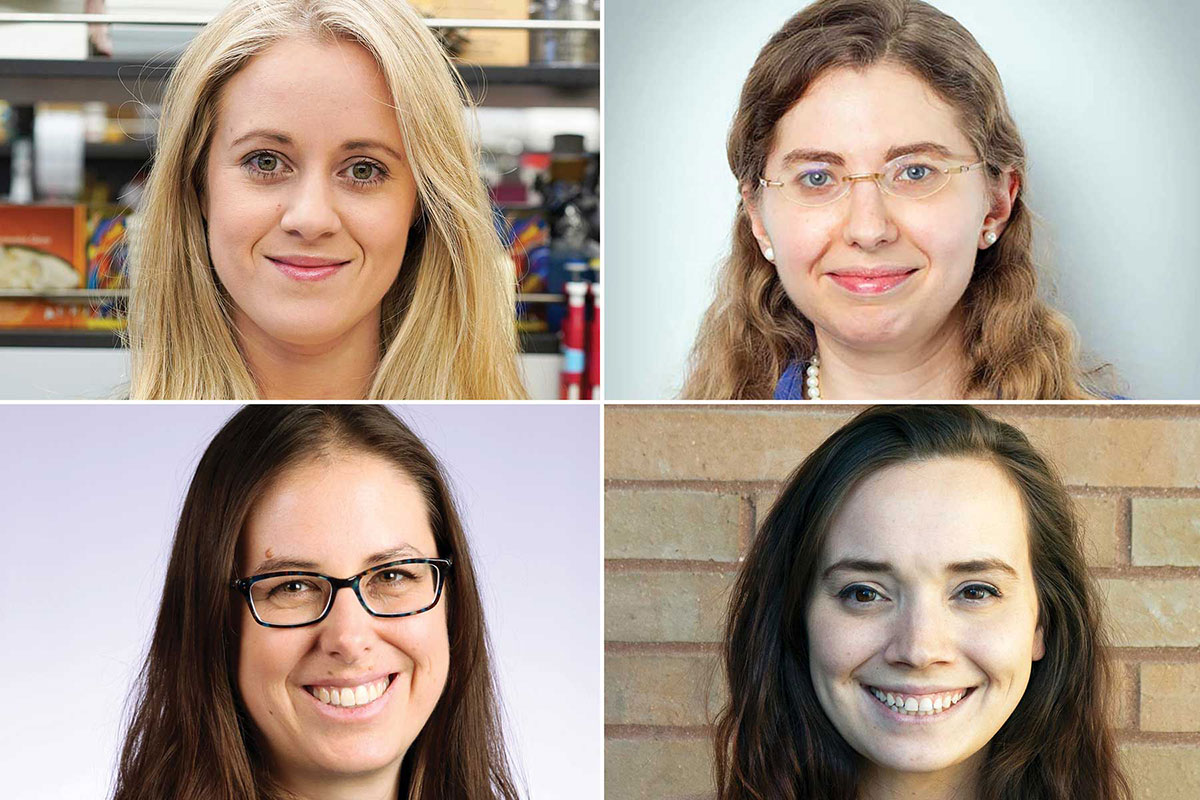Hematology society recognizes four School of Medicine researchers
ASH Scholar Awards support fellows to junior faculty in hematology

Four early-career researchers at Washington University School of Medicine in St. Louis have been recognized by the American Society of Hematology (ASH) for their dedication to the field of hematology. The ASH Scholar Awards provide financial support to fellows and junior faculty who have dedicated their careers to the study of blood disorders.
One of ASH’s most prestigious research award programs, the Scholar Awards provide funding to young scientists as they make the transition from training programs to careers leading independent labs.
Karolyn A. Oetjen, MD, PhD, Amanda M. Smith, PhD, Stephanie Luff, PhD, and Julia T. Warren, MD, PhD, are among the 39 recipients of the 2020 ASH Scholar Awards. Depending on whether the researcher is a fellow or junior faculty member, the awards provide $100,000 to $150,000 over a two- to three-year period to support basic, translational and clinical research seeking to understand and improve the treatment of blood disorders.
Oetjen, an instructor in medicine, uses single-cell sequencing and imaging techniques to understand how cancer cells evolve and adapt to chemotherapy, allowing the recurrence of blood cancers including acute myeloid leukemia (AML) and myelodysplastic syndromes.
Smith, an instructor in medicine, studies the origins of AML in the lab of Timothy J. Ley, MD, the Lewis T. and Rosalind B. Apple Professor of Oncology. She is interested in understanding the events that lead a normal cell to start showing the early signs of becoming cancerous and, from there, identifying the triggers that lead to full-blown AML. The goal is to identify strategies to block this process.
Luff is a postdoctoral research scholar in the lab of Christopher M. Sturgeon, PhD, an assistant professor of medicine. She studies blood-forming stem cells in the early embryo in an effort to understand how they develop.
Warren is a fellow in pediatric hematology/oncology, conducting postdoctoral research in the lab of Daniel C. Link, MD, the Alan A. and Edith L. Wolff Professor of Medicine. Her work is focused on understanding the genes and metabolic processes that regulate formation of granulocytes, a type of white blood cell. Understanding these processes could help develop new treatments for patients with diseases that affect granulocytes and for cancer patients whose treatment causes low numbers of white blood cells, increasing the risk of infection.
The American Society of Hematology is the world’s largest professional society of hematologists dedicated to furthering the understanding, diagnosis, treatment and prevention of disorders affecting the blood.






